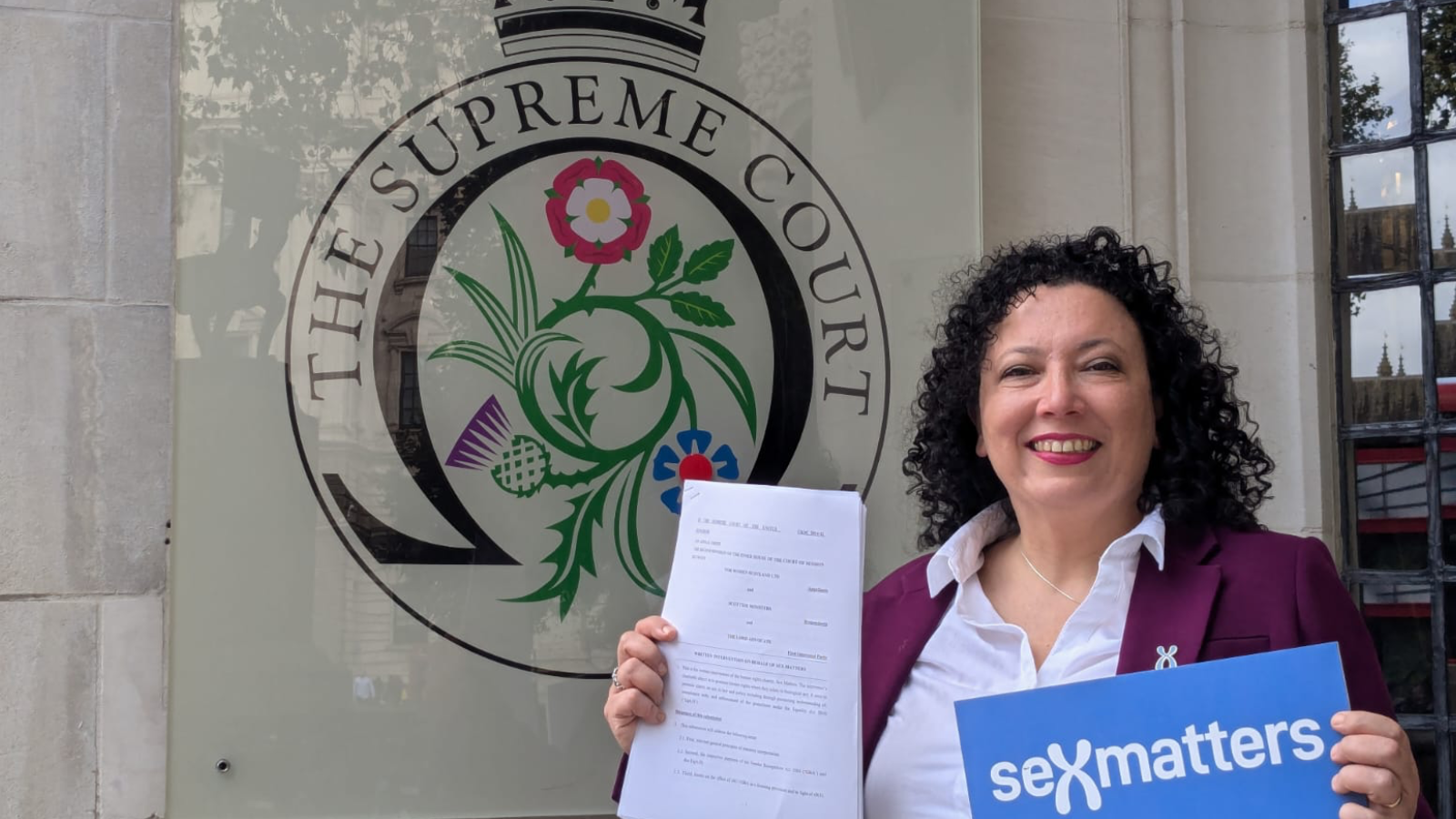Sex Matters’ intervention to the Supreme Court

Yesterday we lodged our intervention in the For Women Scotland appeal which is being heard in the UK Supreme Court on 26th to 27th November 2024.
At the core of the case is the question of whether the meaning of “sex” (man or woman) in the Equality Act 2010 should be read as being modified by Section 9(1) of the Gender Recognition Act, which says that, on obtaining a gender-recognition certificate:
“If the acquired gender is the male gender, the person’s sex becomes that of a man and, if it is the female gender, the person’s sex becomes that of a woman”.
Our submission agrees with For Women Scotland and with the lesbian group that is intervening that “sex” (and the terms man/woman and male/female) in the Equality Act must have the natural meaning. This approach is consistent with protecting everyone’s human rights.
We argue that section 9(1) of the Gender Recognition Act is a “deeming” provision which cannot in fact alter a person’s biology or their related needs, or the perceptions or beliefs of others, and that these remain salient to the purposes of the Equality Act.
In enacting the Equality Act, Parliament chose to protect people from discrimination based on sex and gender reassignment as separate characteristics.
We hold that the reading of “sex” in the EqA10 as being modified by a gender-recognition certificate:
- is not necessary to meet the legislative purposes of either the Equality Act or the Gender Recognition Act in protecting people against sex discrimination or gender reassignment discrimination
- would lead to absurd, unjust and irrational results
- would run counter to the legislative purposes of the Equality Act
- would infringe the rights of women and girls under Articles 8 (privacy) and 11 (freedom of association).
Our experience and research highlights how uncertainty and ambiguity about the circumstances in which it is legitimate to treat biological women and girls as a distinct group has the practical effect that many organisations feel inhibited from doing so at all, or compelled to adopt a “self-ID” approach.
You can read:
- For Women Scotland’s legal argument
- our intervention, written by Ben Cooper KC and David Welsh
- a summary briefing on our intervention
- Scottish Lesbians/Lesbian Project/LGB Alliance
Updated 22/11/24:
Amnesty International UK are also intervening.
